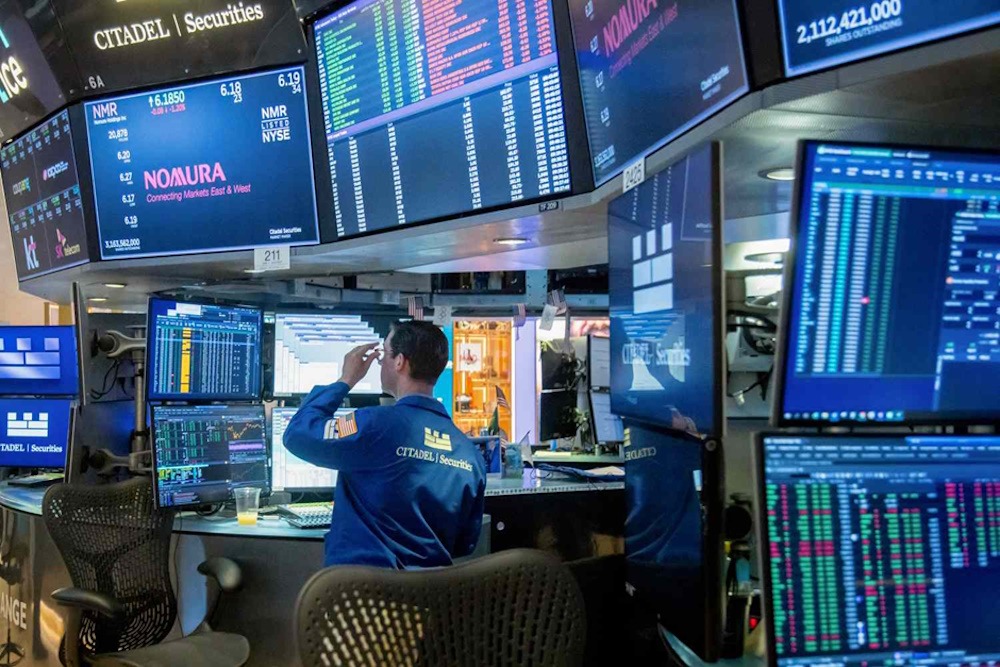
Dow futures were steady and showed little to no sign of movement as markets prepared for Federal Reserve Chair Jerome Powell’s testimony in front of the U.S. Congress. Dow futures remained flat while the S&P 500 futures went up by 0.2%. This testimony from Jerome Powell was a crucial one, as investors were hoping he would discuss when to expect potential rate cuts. Powell’s testimony, however, reminded traders about the uncertainties surrounding tariffs as he said that officials were struggling to determine the effect the U.S. tariffs will have on inflation.
The Nasdaq 100 also gained strongly by 0.2% to reach a new all-time closing high. On Tuesday, it hit its first record closing index for the first time since February, which was a result of relaxed geopolitical tensions and solid corporate fundamentals, especially in the tech industry. While Powell’s testimony and the waning war between Israel and Iran have been the main subject of discussion this week, other industries, like iGaming, have also seen noteworthy developments. There have been several legislations targeted at online casinos and sweepstakes platforms in an effort to button up regulatory lapses. Despite this, many users continue to play their favorite casino games, which sometimes involve real money slots, at CardPlayer. These platforms have large gaming libraries and fewer restrictions.
The gaming industry is currently undergoing strict scrutiny as many states are updating their regulatory frameworks to either catch up with new trends in the sector or ban certain operators from exploiting loopholes in their legislation. With a new wave of legislation coming into the industry, it shows that volatility and compliance are common factors in the entertainment, finance, and tech sectors.
With the Nasdaq 100 index reaching a new record, Dan Greenhaus, Chief Strategist at Solus Alternative Asset Management, pointed out how investors hesitate in decision-making when the market is about to hit a historical high. Investors would either sell or hesitate to sell during this period. He also added that this happens very often whenever the equity market nears its previous record.
There was movement on individual stocks as Nvidia Corp. reached an all-time high. Its stocks closed at $154.31 on 25 June, which was a 4.3% daily increase. This pushed the company’s total market cap to around $3.77 trillion. This increase re-emphasises that Nvidia is one of the most valuable companies in the world. The company also leads the line as one of the biggest developers of computer chips used for artificial intelligence. This achievement also comes after CEO Jensen Huang spoke at the annual shareholder meeting, emphasising that AI infrastructure is a multi-trillion-dollar industry that the company can benefit from.
Loop Capital increased Nvidia’s price target to $250, and with strong earnings from memory supplier Micron, there is optimism about the future of AI infrastructure. Although analysts say Nvidia is creating a monopoly for critical tech, they also forecast that its market value can reach up to $6 trillion. Despite export restrictions in the U.S, Nvidia has made strategic moves which have removed all concerns about Chinese competition.
FedEx shares fell by 6% as it missed its profit forecast for the first quarter of the year. The company stated that due to uncertain global demand and US-China trade policies, it wouldn’t be providing a fiscal outlook for the full year, despite warnings from analysts that this may mean trouble ahead for the parcel company.
Powell’s second day of testimony follows the Fed officials’ decision on June 18 to maintain its interest rates, but the pressure is increasing. Inflation readings are weaker than expected, forcing President Trump to put pressure on policymakers to reduce borrowing costs. When Powell appeared before the Senate Banking Committee, he was questioned by lawmakers, and he responded by asking them who would be responsible for paying the tariffs. He also said it was difficult to predict how the tariffs would affect inflation, which showed that trade policies can be unpredictable and have huge impacts on price stability.
While there are concerns about the state of the U.S. economy, the country was able to broker a fragile ceasefire between Iran and Israel after 12 days of intense conflict between both countries. The ceasefire seemed to be in place, and although Trump had stated that the U.S will enter diplomatic talks with Iran next week, he suggested a deal might not be urgent, given the recent strikes.
Although there are concerns about Trump’s trade regime and how long the peace can remain in the Middle East, the S&P 500 is still within 1% of its record high from earlier this year. The index is trading at 22 times forward earnings, which is 35% above its long-term average. Investors are becoming more cautious as the Bank of America warns that the index looks expensive across the 20 common ways to value the market. Investors are now employing strategies like portfolio hedging and stop-losses as they navigate the uncertainties in the market.
Right now, the market is in a hopeful but fragile spot, and everyone is looking forward to Powell’s testimony and the Personal Consumption Expenditures (PCE) report, which will be released on Friday. PCE rose by 0.1% in April, which showed that inflation was slowing down. If the PCE report for May has similar numbers and Powell sounds patient during the testimony, stocks could rise, but if he sounds worried and the PCE report for May is higher than expected, the market may slide downwards.
